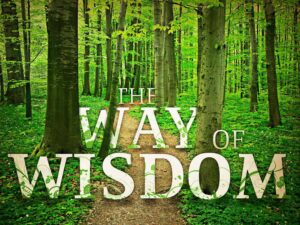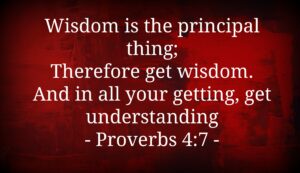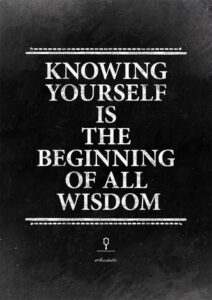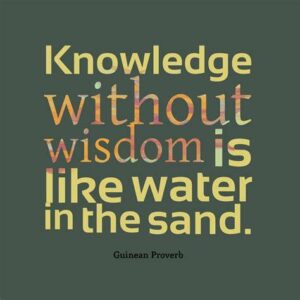 In the journey of life, we often find ourselves at a crossroads, faced with decisions that can shape our destinies. In these moments, the pursuit of wisdom becomes not just a noble endeavor but a beacon of light guiding us through the complexities of existence. In the timeless wisdom literature of the Bible, we find profound insights on the importance of wisdom over material wealth.
In the journey of life, we often find ourselves at a crossroads, faced with decisions that can shape our destinies. In these moments, the pursuit of wisdom becomes not just a noble endeavor but a beacon of light guiding us through the complexities of existence. In the timeless wisdom literature of the Bible, we find profound insights on the importance of wisdom over material wealth.
The concept of wisdom may seem overlooked or underrated. However, a closer look at the Bible, specifically the wisdom literature found in the Book of Proverbs, sheds light on the profound significance of wisdom in a person’s life. As the saying goes, “Wisdom is more precious than rubies, and nothing you desire can compare with her” (Proverbs 8:11, NIV).
DEFINING WISDOM: 
Wisdom, as described in the Bible, goes beyond mere intelligence or knowledge. It encompasses a deep understanding of life, discernment, and the ability to make sound decisions. In the Book of Proverbs, wisdom is personified as a woman calling out in the streets, offering her insights to those who will listen. This poetic imagery emphasizes the active pursuit of wisdom, suggesting that it is not passive but requires intentional seeking.
 SOLOMON’S WISE CHOICE:
SOLOMON’S WISE CHOICE:
One of the most renowned biblical figures associated with wisdom is King Solomon. In the Old Testament, Solomon is not only remembered for his wealth and prosperity but also for his request to God. Solomon, the young and newly crowned king of Israel, is granted a blank check by God.  He can ask for anything, and it will be given to him. Instead of requesting wealth, power, or long life, Solomon asks for wisdom “Give thy servant therefore an understanding heart to judge thy people, that I may discern between good and bad” (1 Kings 3:9)
He can ask for anything, and it will be given to him. Instead of requesting wealth, power, or long life, Solomon asks for wisdom “Give thy servant therefore an understanding heart to judge thy people, that I may discern between good and bad” (1 Kings 3:9)
Solomon’s choice is a paradigm of humility and an acknowledgment of his dependence on God. God, pleased with Solomon’s selfless request, not only grants him wisdom but also adds wealth and honor.
The significance of Solomon’s decision lies in recognizing that wisdom is the key to navigating life’s complexities. With wisdom, one can effectively manage wealth, make righteous decisions, and contribute positively to society.
WHY WISDOM OVER WEATH?
 Solomon’s choice to ask for wisdom over riches highlights the intrinsic value of wisdom in navigating life’s challenges. While wealth may provide temporary comfort and security, it does not guarantee a meaningful and fulfilled life. Wisdom, on the other hand, equips individuals with the ability to make wise choices, foster positive relationships, and live a purposeful life.
Solomon’s choice to ask for wisdom over riches highlights the intrinsic value of wisdom in navigating life’s challenges. While wealth may provide temporary comfort and security, it does not guarantee a meaningful and fulfilled life. Wisdom, on the other hand, equips individuals with the ability to make wise choices, foster positive relationships, and live a purposeful life.
The Bible underscores the importance of wisdom in various verses, such as Proverbs 16:16, which states, “How much better is it to get wisdom than gold! and to get understanding rather be chosen than silver!”
WISDOM GUIDES DECISIONS:
Wisdom plays a crucial role in decision-making. In the New Testament, believers are encouraged to seek wisdom from God: “If any of you lacks wisdom, you should ask God, who gives generously to all without finding fault, and it will be given to you” (James 1:5, NIV). This verse reinforces the idea that wisdom is a gift that God willingly provides to those who earnestly seek it.
In a world often preoccupied with the pursuit of material gain, the Bible’s teachings on wisdom offer a timeless and counter-cultural perspective. The invitation to seek wisdom, resonates across centuries, reminding us that true fulfillment and purpose come from aligning our lives with divine principles. The story of Solomon reinforces the enduring truth that the pursuit of wisdom, rather than wealth, leads to a life of depth. Wisdom is not only about making smart choices but also about living a life aligned with God’s principles.  The story of Solomon choosing wisdom over riches teaches us that true prosperity is found in understanding, discernment, and a heart that seeks after God’s will. As we navigate the complexities of life, let us remember the words of Proverbs 4:7 (King James): “Wisdom is the principal thing; therefore, get wisdom: and with all thy getting, get understanding.”
The story of Solomon choosing wisdom over riches teaches us that true prosperity is found in understanding, discernment, and a heart that seeks after God’s will. As we navigate the complexities of life, let us remember the words of Proverbs 4:7 (King James): “Wisdom is the principal thing; therefore, get wisdom: and with all thy getting, get understanding.”
